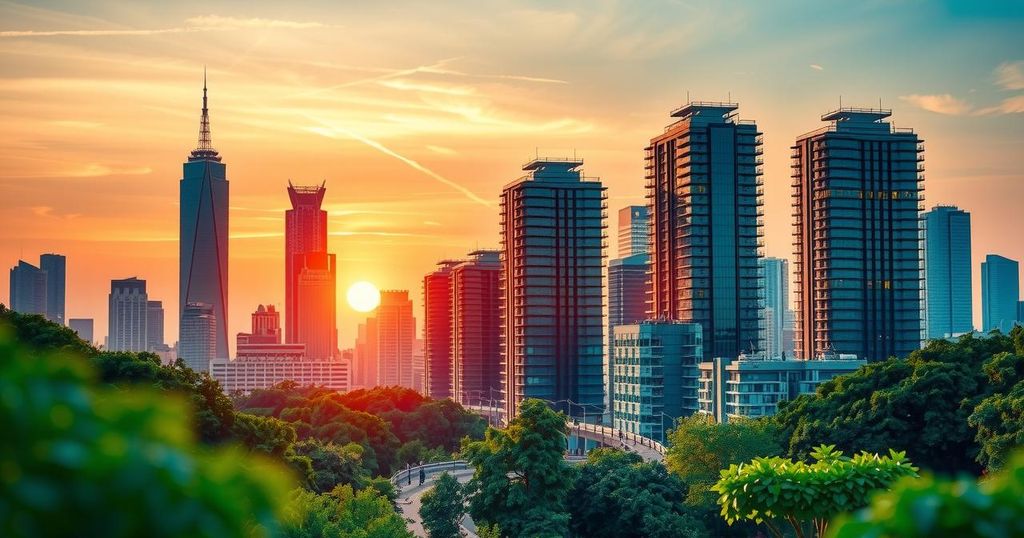Johannesburg’s Transformation: From Crime Hub to Thriving Urban Center

Johannesburg is undergoing a remarkable revival from its previous image as a crime hub to a thriving urban center. Key projects like the revitalization of Ponte Tower and Jewel City highlight the city’s renewed appeal. Community initiatives and infrastructure improvements aim to promote safety and economic growth. Despite challenges that remain, signs of progress indicate a hopeful future for the city as it prepares to host the G20 this year.
Johannesburg, once notorious for its crime, is witnessing a significant revival marked by transformation in areas like the iconic Ponte Tower. Erected in 1975, the tower faced decline in the 1980s due to gang activity and neglect. However, since the 2010 FIFA World Cup, it has seen a resurgence in occupancy, stabilizing at approximately 75% following the COVID-19 pandemic, reflecting broader improvements in the city. Despite ongoing challenges, such as intermittent crime and recent infrastructure issues, Johannesburg’s recovery is evident.
In a district revitalized by property developers like Ithemba, there is a noticeable demand for urban living, particularly in formerly troubled areas. Their flagship project, Jewel City, launched during the COVID-19 pandemic, has quickly filled its residential spaces, showcasing renewed interest in city living. Senior manager Alan Tait of Ithemba noted, “The demand is just phenomenal”, indicating a burgeoning urban market and an optimistic outlook for future projects.
Moreover, initiatives to uplift the city are underway, such as the JoziMyJozi campaign, which focuses on enhancing public spaces, including illuminating dark areas known for crime. CEO Bea Swanepoel emphasized that these projects aim to inspire hope among residents and improve living conditions. As Johannesburg prepares to host the G20 later this year, renewed international interest may propel further investment and future development.
Community empowerment efforts also play a critical role, as seen in organizations like Dlala Nje, working to inspire local engagement and tourism in the city. Member Sifiso Zikhali expressed confidence in their progress, stating, “We are now one of the city’s top attractions”. Their aim is to foster partnerships and collaborative solutions, emphasizing local ownership in the city’s resurgence. Johannesburg aspires to be recognized not only within Africa but globally, akin to major cities such as London or New York, acknowledging the extensive work ahead while spotlighting the progress achieved.
The revival of Johannesburg represents a compelling narrative of urban transformation in South Africa. Once plagued by crime and neglect, significant efforts have been made to restore communities and enhance safety. Initiatives led by both the government and private sectors have focused on providing better living conditions and stimulating economic growth. The historical context surrounding notable buildings, such as the Ponte Tower, encapsulates the broader challenges faced by the city and marks the substantial progress made since the FIFA World Cup in 2010.
In conclusion, Johannesburg’s transformation from a crime-ridden city to a center of urban renewal is a testament to the resilience of its inhabitants and the efficacy of committed initiatives. With ongoing efforts to improve infrastructure, safety, and community engagement, the city is poised to regain its stature as a vibrant urban hub. The forthcoming G20 summit may serve as a catalyst for further growth and investment, enhancing Johannesburg’s global reputation.
Original Source: www.bbc.co.uk







